On July 22, 2021, the Burrard Chinook SeaBus made its maiden voyage across the Burrard Inlet on the shared and unceded territories of the xʷməθkʷəyə̓m (the Musqueam Indian Band), Sḵwxw̱ ú7mesh Úxwumixw (the Squamish Nation), and səlilwətaɬ, (the Tsleil-Waututh Nation).
Since launch, over one million people have travelled on the Burrard Chinook across the Burrard Inlet.
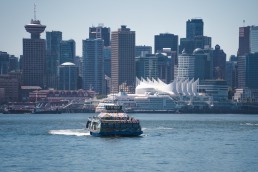
1.
The Burrard Chinook SeaBus is wrapped in art designed by Indigenous artists from the three local Nations, Kelly Cannell, Siobhan Joseph, and Angela George. The artwork illustrates the lifecycle of the Chinook salmon as well as the historical and integral importance of the Chinook salmon to its ecosystem.
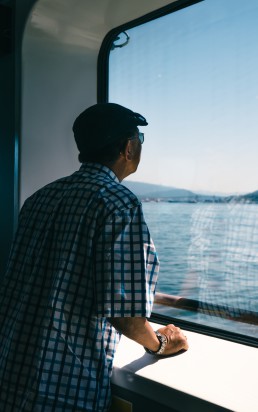
2.
In the past year, the Burrard Chinook has completed approximately over 15,000 sailings, which is equivalent to travelling once around the world.
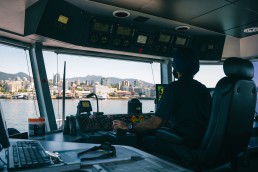
3.
Each SeaBus vessel is operated with a crew of four: the master, one mate and two attendants.
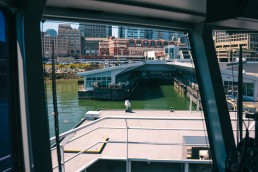
4.
The SeaBus captain has to maneuver the large vessel methodically as it approaches the tight terminal.
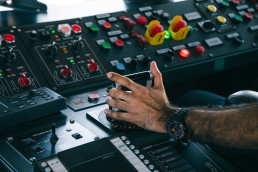
5.
The SeaBus cruises at the speed of 11.5 knots or 21.3 kilometres per hour. The crossing is 1.75 nautical mile or 3.24 kilometres.
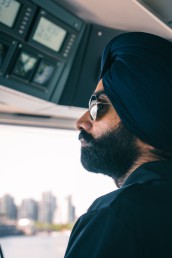
6.
The SeaBus boasts a high on-time performance of 99.9 per cent.
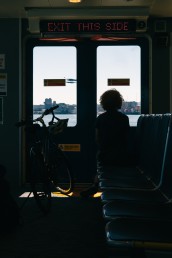
7.
Each trip between Waterfront Station in downtown Vancouver and Lonsdale Quay in North Vancouver takes approximately 12 minutes and just three minutes to load and unload.
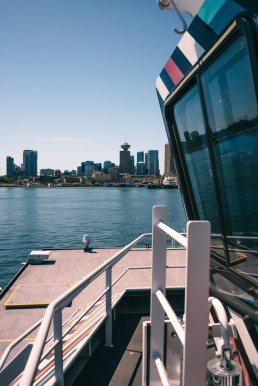
8.
The vessels are made from aluminum. The Burrard Chinook is often described as the gem of our transit system because of its bright colours.
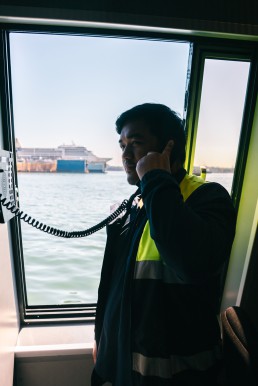
9.
The SeaBus is double-ended, which means there is no need to turn around when leaving the dock. The captain just switches stations and off they go.
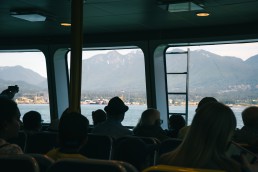
10.
The Burrard Chinook SeaBus is equipped with USB outlets to allow passengers to charge their phone while catching up on their favourite podcast or preparing for their workday.
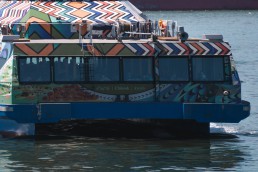
11.
Whether it’s on the Burrard Chinook or the other three SeaBus vessels, the views aboard showcase the best of the city.
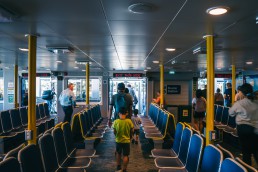






The vessel is bristling with power and USB outlets accessible by practically every seat. What a huge waste of taxpayer money! I rode on this vessel and not one passenger was using this amenity for such a short 15-minute trip